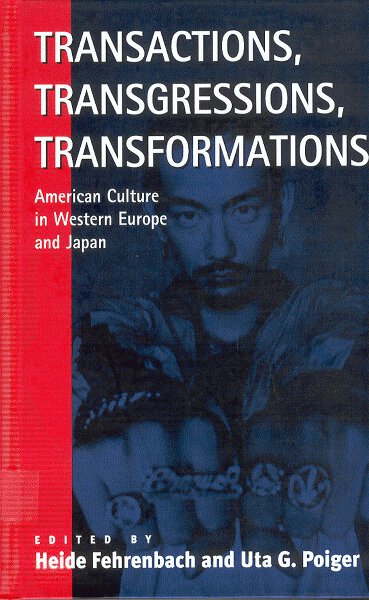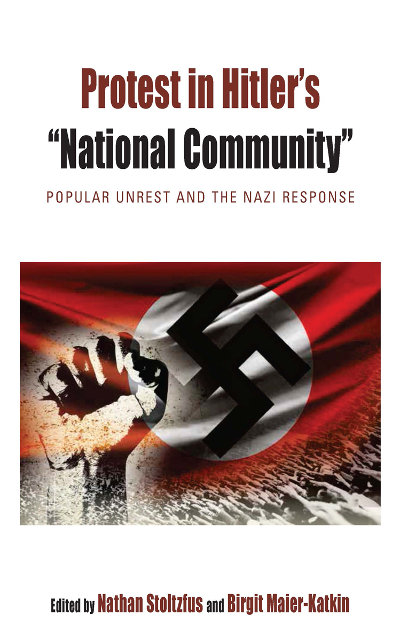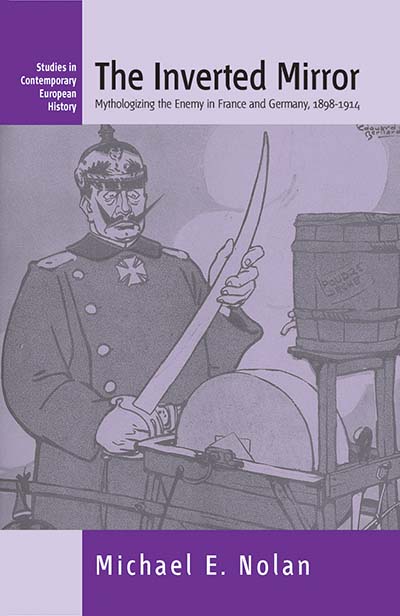
Series
Volume 18
Studies in German History
See Related
History JournalsEmail Newsletters
Sign up for our email newsletters to get customized updates on new Berghahn publications.
The Respectable Career of Fritz K.
The Making and Remaking of a Provincial Nazi Leader
Hartmut Berghoff and Cornelia Rauh
Translated from the German by Casey Butterfield
376 pages, 44 illus., 5 tables, bibliog., index
ISBN 978-1-78238-593-6 $150.00/£115.00 / Hb / Published (May 2015)
ISBN 978-1-78920-846-7 $39.95/£31.95 / Pb / Published (December 2020)
eISBN 978-1-80758-486-3 eBook
Reviews
“Berghoff and Rauh expertly weave Kiehn’s life into the historiography of twentieth- century Germany. They also tell the story of the German Mittelstand (owners of small to medium-sized companies) in the last century.” • Central European History
“…offers a welcome addition to English-language readers who are interested in learning more about protagonists beyond the usual suspects of Daimler, Deutsche Bank, or Krupp…It is an intriguing story, perhaps more in the context of local than of business history. But then again, all business history is local.” • Journal of Modern History
“Berghoff and Rauh provide an admirably well-researched picture of a Nazi provincial activist from the economic Mittelstand, and of the networks of corruption and cronyism that characterized the workings of the ‘Third Reich’ at the local and regional level…[They] do an exemplary job of integrating Kiehn’s biography with local, regional, and national history, in a fine example of the use of microhistorical analysis (of an inherently mediocre figure) to shed light on business history and the workings of the Nazi regime at the provincial level.” • European History Quarterly
“By outlining Fritz Kiehn's career both in a rational-academic but also lively manner, the authors have succeeded in creating an unusually insightful and astute book on what was ‘normal’ in Germany in the twentieth century.” • Die Zeit
“The documentation and interpretation of what was usual makes [the book's] presentation interesting and worth reading. It is also worth reading, of course, because of the writing talents of both its authors, [who] have not only penned a rich socio-historical study, they have, quite simply... written a good book.” • Vierteljahrschrift für Sozial- und Wirtschaftsgeschichte
“A historiographical masterwork, a successful example of how fruitful interdisciplinary historical research can be. It is about structures, milieus, mentalities, and microhistory. But it is also just as much about grand politics, economic history, and a very particular person whose contradictions the two authors managed to describe with brilliance.” • Frankfurter Allgemeine Zeitung
Description
Entrepreneur and Nazi functionary Fritz Kiehn lived through almost 100 years of German history, from the Bismarck era to the late Bonn Republic. A successful manufacturer, Kiehn joined the Nazi Party in 1930 and obtained a number of influential posts after 1933, making him one of the most powerful Nazi functionaries in southern Germany. These posts allowed him ample opportunity to profit from “Aryanizations” and state contracts. After 1945, he restored his reputation, was close to Adenauer's CDU during Germany's economic miracle, and was a respected and honored citizen in Trossingen. Kiehn's biography provides a key to understanding the political upheavals of the twentieth century, especially the workings of the corrupt Nazi system as well as the “coming to terms” with National Socialism in the Federal Republic.
Hartmut Berghoff is Professor of Economic and Social History at the University of Göttingen in Germany. From 2008 to 2015 he was the Director of the German Historical Institute in Washington, D.C.. His latest book, together with Ingo Köhler, is Varieties of Family Business. Germany and the United States, Past and Present (Campus/University of Chicago Press, 2020). Recently he co-edited The Consumer on the Home Front: Second World War Civilian Consumption in Comparative Perspective (Oxford University Press, 2017) and Explorations and Entanglements: Germans in Pacific Worlds from the Early Modern Period to World War I (Berghahn, 2019).
Cornelia Rauh holds the Contemporary History Chair at the University of Hanover. She is the author of Katholisches Milieu und Kleinstadtgesellschaft (Thorbecke, 1991) and Suisse Aluminium for Hitler’s War? The History of Alusuisse from 1918 to 1950 (Beck, 2009), which won the Gesellschaft für Unternehmensgeschichte (GUG) prize. She has also published biographies of entrepreneurs and other books on twentieth-century German and French history. Recently she has been researching the Nazi business of the Guelphs, an important family of the German high nobility.
Subject: History: 20th Century to Present
Area: Germany
Contents
Download ToC (PDF)




